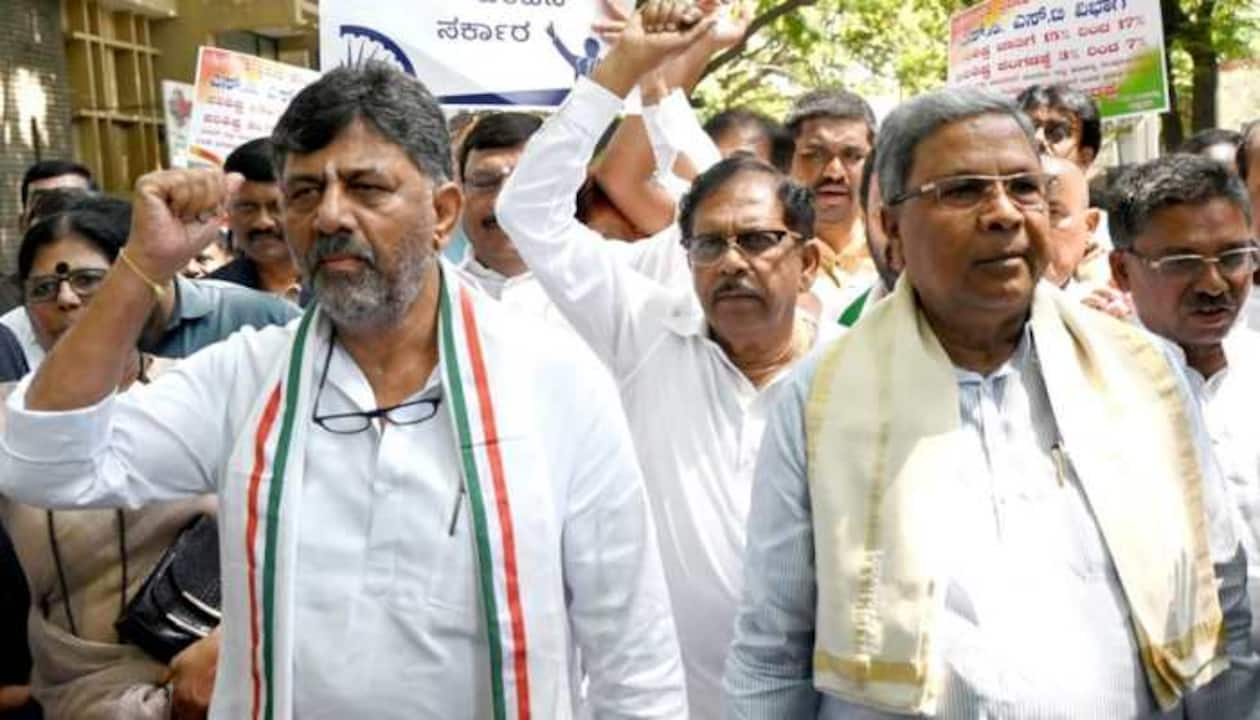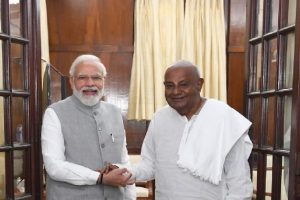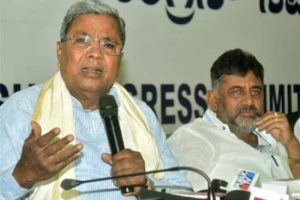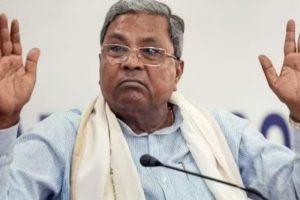Bengaluru: In what appeared to be a neck-and-neck race between the Congress and the BJP, the dramatic collapse of the “third leg” of Karnataka politics, the Janata Dal (Secular), helped the Congress party to register an impressive victory, securing an almost two-thirds majority in the Assembly elections 2023.
The lacklustre performance of the Basavaraj Bommai government for the past two years, allegations of corruption against some ministers, the failure to ensure proper implementation of the Prime Minister’s schemes for the poor and total inertia in building a counter-narrative against Congress’s aggressive campaign also contributed significantly to the BJP’s defeat.
Thanks to Prime Minister Narendra Modi’s vigorous campaigning in the last three weeks, holding more than 30 public meetings and six massive roadshows across the state, the BJP was able to retain its vote share of 36% and give the Congress a tough fight.
But, the unexpected crumbling of the JD(S) in its bastion, the Old Mysuru region and the overall loss of 5% of votes was largely grabbed by the Congress whose vote share went up from 38% last time to 43%. The fact that the BJP, too, gained at the expense of the JD(S) in terms of votes but not seats, helped Congress to turn up with an impressive performance.
Congress’s history of infighting
The last time Congress registered more than 125 seats was under Veerendra Patil in 1989 when its tally went up to 184, but its decline began the very next year when Patil was “sacked” by then prime minister Rajiv Gandhi when he was recovering from a stroke. S Bangarapapa and Veerappa Moliy who became chief ministers subsequently became victims of massive infighting in the Congress and in the 1994 Assembly polls that followed, the Congress was reduced to its lowest ever tally of 36 seats.
Hence, the Karnataka watchers will have their binoculars out as to how the Congress leadership will resolve the “fight” between Siddaramaiah and DK Shivakumar for chief ministership which had been brushed under the carpet until the elections were over. As the results veered towards a Congress majority, both Shivakumar and Siddaramaiah made no bones about their desire to ascend to the throne, but Congress president, Mallikarjun Kharge tried to calm their nerves saying “Sonia Gandhi and Rahul Gandhi will decide” on who should be made chief minister based on the preference of elected legislators.
Kharge, addressing the media, side-stepped a question as to when the Congress party’s five “guarantees” would be implemented saying “it will happen,” but a euphoric Rahul Gandhi who came out to bask in Karnataka local leaders’ glory, said a decision on the guarantees “will be taken at the first cabinet meeting of the new government.”
Freebies galore
During the course of the election campaign, the Congress party had promised the people of Karnataka 200 units of free electricity, Rs 2,000 monthly ‘gift’ to the woman head of the household, Rs 3,000 per month to unemployed youth, Rs 1,500 to diploma-holders and free bus ride across the state for all women.
Questions have been raised as to how the Congress-led government would raise the resources required to meet these “freebies” and how much would it cost the state exchequer. There have not been any convincing replies from Congress leaders, except that Shivakumar asserted, “we have been in government earlier and we know how to do it.”
In the current elections, preliminary figures show that the Congress party was able to get more than 70% of women’s votes lured by these freebies, but to what extent the Congress would be able to fulfil its promises or whether the women have been “conned” into giving their votes like the people of Rajasthan and Chhatisgarh were, remains to be seen.
As far as the BJP is concerned, the party would be happy that its “experiment” of introducing more than 70 new faces largely worked and it has removed a lot of deadwood at one go and would have an army of new legislators who could play their roles in the next two to three elections. The defeat of former chief minister Jagadish Shettar, who defected to the Congress after being denied ticket by the BJP, by a greenhorn, and the victory of all five candidates in Udupi district despite three candidates being changed, is indicative of BJP’s long-term election strategy, even if it meant a temporary setback which was not totally unexpected given the anti-incumbency suffered by the Bommai government.




















